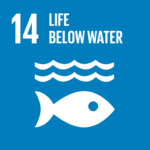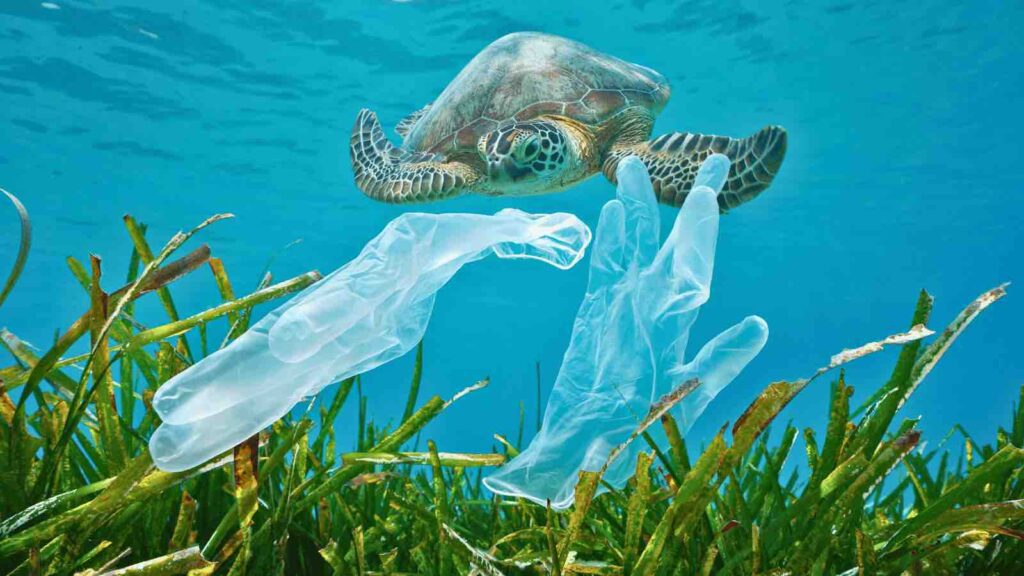The UN Environment Programme (UNEP) has published the first draft of a new global treaty intended to super-charge efforts to eliminate plastic pollution through to 2040.
In a world grappling with an escalating plastic crisis, the Zero Draft of the UN Treaty on Plastics provides a glimpse of hope, signaling an ambitious international effort to halt plastic pollution. But what lies within its pages, and how crucial is it for the future?
RELEVANT SUSTAINABLE GOALS



The Genesis of the Zero Draft
The term ‘Zero Draft’ signifies the initial version of the global plastics treaty. Born from discussions spanning 175 countries, it lays the groundwork for negotiations over the next year. The ultimate aim is the development of a legally binding instrument to put an end to plastic pollution by 2024.
The drafting process, overseen by the Chair of the Intergovernmental Negotiation Committee (INC), began in 2022. The INC shoulders the responsibility of brokering this pivotal treaty among member nations.
Why the Draft Matters
As the crystallization of numerous debates and proposals, the Draft predicts the direction countries might take towards ending plastic pollution. The document reads like an exhaustive inventory of solutions rather than a definitive action plan. This inclusiveness springs from the need to encompass the varied and sometimes conflicting demands of all participating UN member states. Notably, the previous meeting in May at INC-2 experienced protracted negotiations, and the Draft subsequently proposes multiple options for many obligations.
Future negotiations will reveal the leading options. Presently, the tide leans towards a treaty that incorporates global bans, advocates a robust circular economy, and mandates legally binding rules. According to WWF, a sweeping majority support phasing out high-risk plastics, with over 140 countries backing a ban on single-use items and intentionally added microplastics.
Industry’s Recycling Focus Faces Headwinds
Lobbyists, especially from the plastics sector, are vying to direct the treaty’s essence towards recycling and waste management, avoiding production limits. The American Chemistry Council, which boasts board members from giants like Shell and Total, cautioned against curbing plastic production earlier this year. They argue such materials are indispensable for clean water, renewable energy, and essential medical supplies.
In the wake of the draft’s release, environmentalists and campaigners showed more enthusiasm than industry insiders. Greenpeace’s Graham Forbes appreciated its “necessary provisions,” while campaigners Ana Rocha and Yvette Arelano lauded it as a promising baseline and a positive stride, respectively.
Yet, Benny Mermans, the chair of the World Plastics Council and an executive from Chevron Phillips chemical company, expressed concerns over the draft’s perceived neglect of a circular economy for plastics – an economic model promoting material recycling.
Draft’s Alignment with Expectations
A silver lining: the Zero Draft encompasses essential measures like global rules on plastic production and consumption, bans on high-risk plastics, waste management standards, extended producer responsibility, and a robust financial mechanism. It illustrates that a game-changing treaty is achievable.
The downside? Vague language and optional voluntary measures water down the draft’s impact. The Draft’s ambiguity about high-risk plastics, such as abandoned fishing gear and microplastic leakage, remains a concern.
WWF’s examination of the Draft underscores the potential for a global, binding agreement. However, the advocacy group warns against settling for a diluted approach. They stress that negotiators must emphasize measures with the most potential for global collaboration.
Looking Forward
The unveiling of the Draft has been met with varying responses. While environmental advocates like Greenpeace and WWF have lauded the initiative, the World Plastics Council and the American Chemistry Council have expressed reservations.
Beyond the negotiations, the Draft propounds the establishment of a fund to assist developing countries combat plastic pollution. The document proposes either a novel fund or a financial scheme within an existing arrangement.
The Draft appears to omit essential aspects such as the role of indigenous peoples, AI usage for accountability, alternative polymers, and landfill mitigation. Nevertheless, it’s viewed as a step in the right direction, emphasizing the need for a more comprehensive strategy to achieve tangible results.
As the world pivots towards a cleaner future, the UN’s Zero Draft symbolizes a collective commitment to challenge plastic pollution head-on. Its evolution in the coming months will undoubtedly shape the global approach to a problem that affects every corner of our planet.
You may also be interested in :
The UN’s New High Seas Treaty : A Pivotal Turn in Global Marine Conservation


